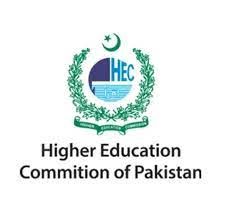Current Political & Economic Turmoil & Healthcare Provision
Turmoil and Healthcare
DOI:
https://doi.org/10.54393/tt.v4i02.124Abstract
Pakistan is doing well in achieving some Sustainable Development Goals (SDGs). However, Pakistan is left behind in meeting SDG 3 goal which is related to its Population’s health and wellbeing, which seem to be an impossible target in near future due to the current political turmoil and economic crisis, which is a huge challenge for the healthcare system. Unexpectedly following Pakistan’s 2010 devolution of health to provinces instead of an improvement in provision of healthcare, low capacity of institutions, week central and provincial- coordination and increased interference by elites impeded any significant improvement in health sector [1]. The economic crunch has hit the healthcare sector very badly, affecting the medical supply lines since it relies mostly on imported raw medical supplies to manufacture medicines, and imports of complicated surgical equipment, including cardiac, orthopedic and cochlear implants essentially required for saving lives and for catering to the physical as well as communicational disabilities [2]. Hence, with Pakistan’s fragile economy marred with precarious conditions including widespread floods of 2022 and extremism has brought the country’s economy to a record low level, affecting all activities of life including healthcare provision to the masses [3]. Pakistani health professionals’ competency is also at stake and low salaries are driving these professionals to opt for more than one job at a time and unfortunately compelling professionals to leave the country for better future [4]. The political turmoil and economic crunch have also resulted in inflation resulting in a record price hike affecting daily life; and raising crime rate which has also impact tourism, including medical tourism which has improved healthcare provision and income generation in some neighboring countries like India, UAE etc [5]. This also demands accreditation of medical institutions of the country with Joint Commission International (JCI) and other such international accreditation agencies to enhance healthcare quality and provision of standard healthcare. The current crisis has also multiplied many folds because of outbreaks of diseases in the flood affected areas, which are already marred with health issues like malnutrition and outbreak of infections like hepatitis, typhoid, paratyphoid and tuberculosis etc. Even in emergency and war situations, healthcare takes precedence, hence it is high time for the authorities and the government to mitigate the issues facing healthcare in the country by increasing budget allocation, systematic clinical and community healthcare provision, enhancing coordination of provincial and federal health authorities, hiring of medical and allied staff to fill the vacant positions, attractive salaries for this essentially required community, enhancing collaboration with World Health Organization, UNICEF and other international agencies, getting accreditation of medical institutions to enhance medical tourism and policy level decisions for sustainable healthcare policy. These steps will enhance quality of healthcare provision, retaining of highly skilled medical and paramedical manpower in the country and result in better provision of healthcare.
References
Zaidi SA, Bigdeli M, Langlois EV, Riaz A, Orr DW, Idrees N, et al. Health systems changes after decentralisation: progress, challenges and dynamics in Pakistan. BMJ Global Health. 2019 Jan; 4(1): e001013.
Zaman S. Voice of America. Pakistan’s Health Sector Hit Hard by Economic Crisis 2023. [Last Cited: 6th May 2023]. Available at: https://www.voanews.com/a/pakistan-s-health-sector-hit-hard-by-economic-crisis/6986723.html
United States Institute of Peace. The Current Situation in Pakistan. A USIP Facst Sheet. 2023 [Last Cited: 6th May 2023]. Available at: https://www.usip.org/publications/2023/01/current-situation-pakistan
Tariq N. Polymers, Health Care Challenges in Pakistan. Journal of Islamabad Medical and Dental College. 2021 Dec; 10(4): 190-1. doi: 10.35787/jimdc.v10i4.770.
Rauf A, Abbas AMA, Rafiq A, Shakir S, Abid S. The Impact of Political Instability, Food Prices, and Crime Rate on Tourism: A Way toward Sustainable Tourism in Pakistan. Sustainability. 2022; 14(24):16993. doi: 10.3390/su142416993.
Downloads
Published
How to Cite
Issue
Section
License
Copyright (c) 2023 THE THERAPIST (Journal of Therapies & Rehabilitation Sciences)

This work is licensed under a Creative Commons Attribution 4.0 International License.
This is an open-access journal and all the published articles / items are distributed under the terms of the Creative Commons Attribution License, which permits unrestricted use, distribution, and reproduction in any medium, provided the original author and source are credited. For comments editor@thetherapist.com.pk










